Our mission is to highlight and reward the best, most innovative and creative independent filmmaking and filmmakers in the UK. Reason tells us that women should make up 50% of our nominees and winners – and yet this isn’t true. While we are proud of and pleased for all of our nominees, it was as disappointing for us as much as anyone to see so few women nominated for the 2015 awards. Despite the BIFA voters being 51% female, no women received nominations in the Directing, Debut Directing and Producer of the Year categories, and the Screenwriting and Craft categories only had one female nominee each. The problem is systemic to the film industry, with recent reports finding that women are under-represented in nearly all sectors of film.
As part of our commitment to celebrating the indie film community in all its diversity, and promoting British film and talent, we will work towards encouraging more young women to pursue careers in the film industry. We will also celebrate women who already work in film, with interviews and events with female creatives who have worked on BIFA-winning films.
In our first article, in celebration of International Women’s Day, we talk to six women from the British film industry, who have worked on BIFA, BAFTA and Oscar-nominated films. We asked them each three questions:
How did you start working in the film industry?
What is the toughest challenge you’ve faced?
What advice would you give to young women seeking to follow in your footsteps?
Enjoy their fascinating, varied and inspiring answers below!
________________________________________________________________________________
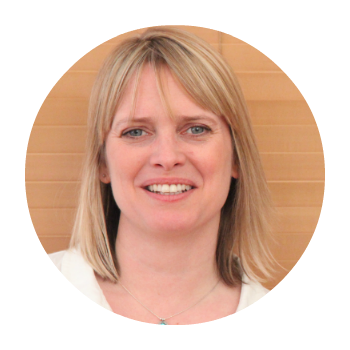 Angela Barson – IMDB
Angela Barson – IMDB
Angela Barson has been a Visual Effects Supervisor for over 10 years, whose work includes Ali G Indahouse, Game of Thrones, the last 3 Bond films and BIFA winners and nominees Belle, The Imitation Game, Slow West and Macbeth.
How did you start working in the film industry?
I had never planned to work in the film industry. Whilst studying architecture I developed an interest in photography and computing then, during a visit to London, I went to visit a small software company (Parallax) which made digital paint and compositing software. One of the bosses there met me and recognised that my architectural training gave me a great skillset for working in their company (he too was a trained architect). I took a job with them working on their paint and compositing software packages, not having the first clue about film or TV. It was a steep learning curve! After eight years in software I made the transition to being a digital artist. I did a short stint at the BBC, before joining MPC for eight years and becoming a VFX Supervisor. Starting my own VFX company was never something I imagined I’d do, but it’s the most rewarding thing I’ve done.
What is the toughest challenge you’ve faced?
One of the toughest challenges has been juggling the demands and hours of working in a big VFX facility (MPC) whilst having two children. I definitely had to sacrifice time spent with my children when they were young for the job, but now that they are older they appreciate the hard work I put in to get where I am today. Especially as one of them now wants to get into the film industry! I think it’s sad how many women leave the industry when they have children as it’s a big loss of talent.
What advice would you give to young women seeking to follow in your footsteps?
Whilst you will almost certainly come across some sexism in the film industry, especially if you are in a technical role, there’s no point in getting annoyed or affronted (unless it’s extreme). Just show you can do your job well and you will be respected. On the whole, I think the industry is improving and the vast majority of the people I work with care about how good you are at your job, not which sex you are. Have confidence in your ability, always be willing to learn, and be nice to everyone from the bottom to the top of the hierarchy – it takes the entire team to get a film made, plus you never know when the runner will one day turn up as your boss!
________________________________________________________________________________
Anna Bertmark – website – IMDB![]()
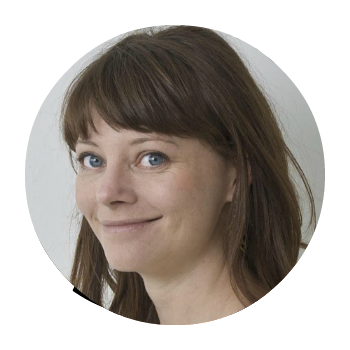
Anna’s freelancing career as a Sound Editor and Designer began in 2009, and since then she’s worked on a range of award-winning and hallmark British films, including The Infidel, Starred Up (multi-BIFA nominee, 2013), Lilting (multi-BIFA nominee, 2014) and The Goob (also a multiple-BIFA nominee, 2014).
How did you start working in the film industry?
I got a job as an assistant in a sound facility run by Paul Davies, in north Soho, about six months after graduating from University where I studied Music Technology. Many music studios in London had started closing down at the time and I was looking for a job related to what I had studied. Like many people, I was in the dark about the types of job roles in the film industry before I started and I had no idea you could work with sound effects. My first job involved making tea and coffee, but I soon started assisting the other sound editors and later decided it was something I wanted to become really good at.
What is the toughest challenge you’ve faced?
I think to keep on trying to make a living as a freelancer doing what you love during a recession is a huge challenge. There have been times I thought about going and doing something different that would make for an easier life, simply because there wasn’t enough work around. You need a lot of trust in yourself and support from friends and family to keep going when things don’t go as expected. I’m thankful for the advice I got early on; to network tirelessly the first five years of freelancing, and coming up with new ways of making contact with people I wanted to work for, to stand out from the crowd. A client unexpectedly got in touch when I needed work the most and sometimes you only need one. Freelancing, on its own, can be a lonely road too. Before the recession it was rare to work from home studios (I now work in a studio 15 mins walk from my home), but everyone sat in the same building, so it was a much more social lifestyle. To balance this up, I make more of an effort to go and meet up with colleagues and clients face-to-face now. I try to keep emails to a minimum.
What advice would you give to young women seeking to follow in your footsteps?
I think these days, I’d say start as an assistant in a sound facility, but have a clear aim about where you want to go and ask people how to get there, even if that aim might change down the road. Show you have a passion for the job and be enjoyable to have in a team. Embrace challenges. Make an effort to network / socialise and keep in touch with the people you meet that inspire you – you never know where these contacts can lead in the future. Don’t be afraid to get completely engrossed and obsessed with what you do, but also, especially when it comes to sustaining a computer-based career, it’s important to look after yourself and stay healthy. You’re no good to anyone if you’re not good to yourself.
________________________________________________________________________________
Al Morrow – website – IMDB![]()
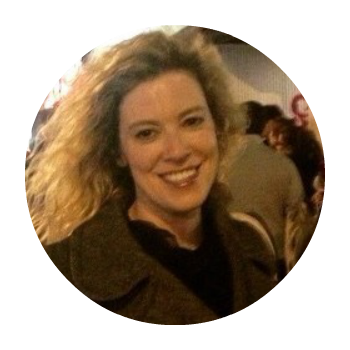
Al is an award winning producer and Head of Documentary at Met Film Production. Her credits include The Great Hip-Hop Hoax (BIFA nominee, 2013), and two films nominated in the 2015 awards – Greenpeace documentary How to Change the World and Jeanie Finlay’s Discovery Award-winning Orion: The Man Who Would Be King.
How did you start working in the film industry?
I came from a theatre background and took a film idea I had to the only director I knew – Jerry Rothwell. Jerry introduced me to Jonny Persey and Stewart Le Marechal. That was 13 years ago and I’ve been working with the three of them ever since.
What is the toughest challenge you’ve faced?
Working on my first film was really hard, and I was literally terrified for two years. I had great support but it was a huge jump for me career wise, looking back now I would had handled certain things differently.
What advice would you give to young women seeking to follow in your footsteps?
Don’t let not knowing what you are doing stop you from doing it! The first six years or so of my career I felt like the rest of the industry knew something I didn’t, then I realised that most of us are on a steep learning curve all the time and that’s what makes this job so exciting. Every film is a completely new experience.
________________________________________________________________________________
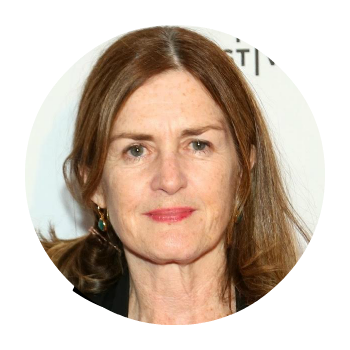 Finola Dwyer – website – IMDB
Finola Dwyer – website – IMDB
Finola Dwyer is an Oscar nominated, and BAFTA and BIFA award-winning film and television Producer. She runs Wildgaze Films with her producing partner, Amanda Posey. Her credits include An Education (BIFA nominated, 2009), Quartet (BIFA nominated, 2012) and Brooklyn (BIFA nominated & winner for Best Actress, 2015).
How did you start working in the film industry?
I wanted to be a camerawoman when I was at school, I was mad on photography and telling stories visually and set up a darkroom at my school. There was no opportunity for women working in camera then, so I went to university and decided to try and get into the industry through editing, I figured camera is story telling and so is editing. Editing is the most fantastic background for producing, I literally ‘fell’ into producing and had no idea how valuable my time in the editing room would be as a producer.
What is the toughest challenge you’ve faced?
Moving from NZ to London in the early ‘90s. In NZ I had only been producing for a couple of years and had produced films; devised and produced NZ’s first successful chat show; won a a Best Documentary award, which led to a top rating spin off series. My husband at the time got a job in London, I left when all was possible in NZ and arrived in the tail end of Thatcher’s Britain and England felt like the most depressed place on earth. An American producer working in London told me no one would ever give me a break when most of the industry was unemployed, I nearly packed my bags then and there, but thought ‘I’ll show you’ and here I am 20 years later. I have a lot to thank him for.
What advice would you give to young women seeking to follow in your footsteps?
Don’t take no for an answer and persevere. Producing is not for the fainthearted, you have to take risks and follow your instincts.
________________________________________________________________________________
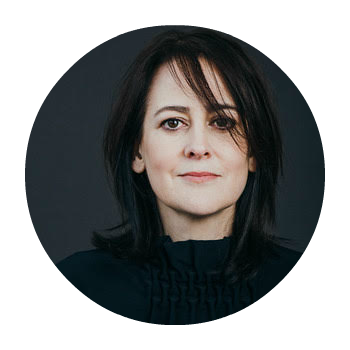 Lesley Barber – website – IMDB
Lesley Barber – website – IMDB
Lesley Barber is a Canadian composer of music for film, theatre, chamber and orchestral ensembles. She has been working for over 20 years and her credits include Mansfield Park, The Moth Diaries, BIFA-nominated How to Change the World and Sundance 2016 breakout Manchester By the Sea.
How did you start working in the film industry?
I was writing music for music ensembles and theatre, and filmmakers became familiar with my music and began asking me to score their films. My first score was for director Patricia Rozema’s When Night Is Falling. The collaborative relationship involved with scoring feature films really interests me – I love the effect a film and film music can have on people, and helping a film director create this new layer/impact/intensity in their storytelling.
What is the toughest challenge you’ve faced?
Over the past few years less budget often seems to be earmarked for the original score – especially for orchestral scoring. The upside is that it’s led to some wonderful relationships internationally with orchestras and musicians that have performed or worked on many of my recent scores.
It’s also really clear that the film industry remains stuck in a gender bias. I read recently that there’s a greater chance of a woman becoming an astronaut (11%) than a film composer of a studio feature (2%). That’s an astonishing statistic and although I’ve been lucky to work with wonderful directors and producers – this speaks to how locked into an unconscious bias many producers and directors must be.
What advice would you give to young women seeking to follow in your footsteps?
Develop your own voice as a composer – learn everything you can about the entire filmmaking process – not just scoring. Search out filmmakers whose work inspires you, as well as musicians and other personnel that you like to work with – having a great team working with you is really important to the scoring process. Fall in love with storytelling and immerse yourself in the language of film.
________________________________________________________________________________
 Anonymous Acquisitions Executive
Anonymous Acquisitions Executive
This contributor has chosen to remain anonymous – but we can tell you that she’s an acquisitions executive working in one of Britain’s leading indie sales companies.
How did you start working in the film industry?
I started working with an independent production company in Ireland as an intern, which then led to full time employment. I was very lucky to work with an excellent driven intelligent producer who involved me in every process so that I could learn in a very practical way. She was an early mentor for me and someone I still work with to this day.
What is the toughest challenge you’ve faced?
I think the toughest challenge I have faced is being able to define what I wanted to do. There are so many sectors of the industry that I needed to find where my true passions lay. In my role I get to combine the creative side of the industry with the business side. That is the greatest challenge, and greatest feeling, in my opinion. It took me a moment to figure out my path and to forge ahead with trying to get there but I have been very fortunate to work with not only the leaders in their fields but also very good people who have helped my career every step of the way.
What advice would you give to young women seeking to follow in your footsteps?
I have never felt hindered by the fact that I am a woman… I think its about forgetting any thing that you might feel holds you back and just feeling confident in your skills as a professional, making sure that you are following the right path for you and your passions as only then will you be motivated to do a good job and keep pushing. Make sure to be a good person, and that at the end of the day you are proud of what you have achieved. Being a woman is a powerful position to be in but only if you empower yourself as an individual first.
________________________________________________________________________________
We hope that you’ve enjoyed our article. If you would like to do something to mark International Women’s Day, you can visit the organisation’s website.
If you’re interested in finding out more about women in film, check out Women in Film and TV and Bird’s Eye View!



